Evans honours the rainbow jersey at La Flèche Wallonne
Tour de France still a goal for world champion
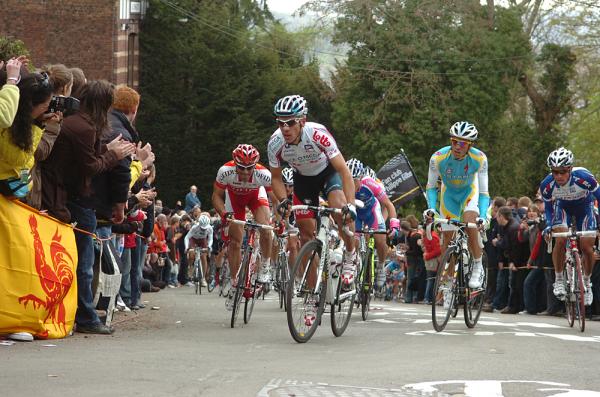
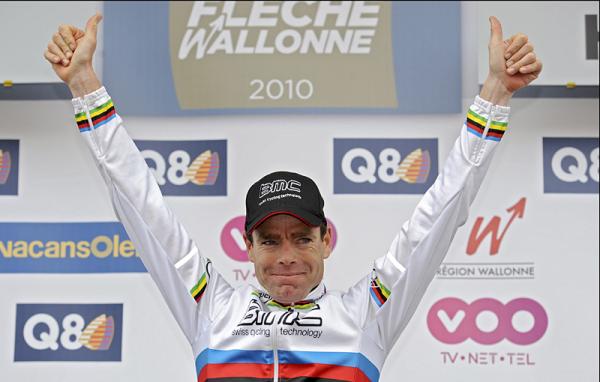
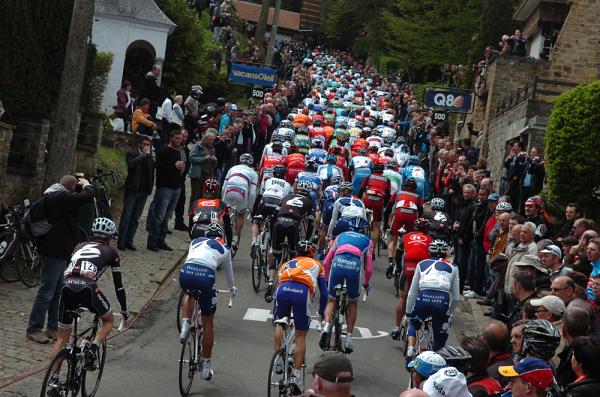
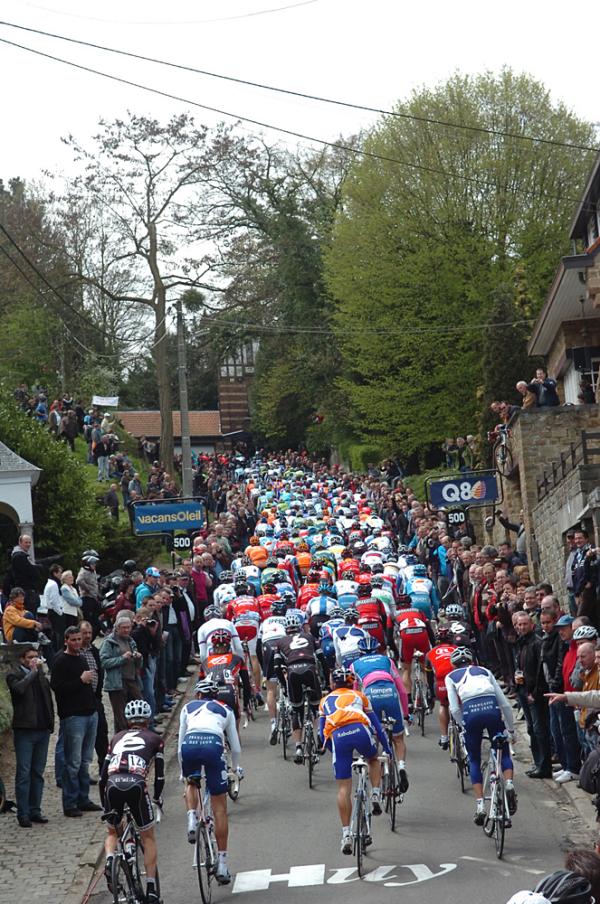
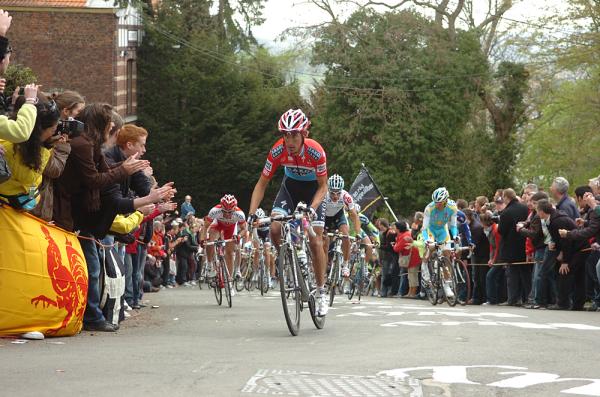
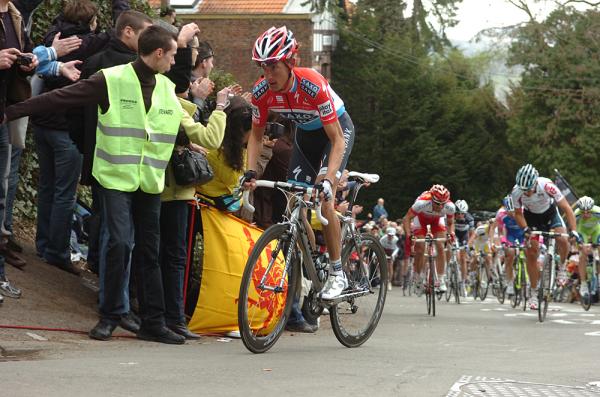
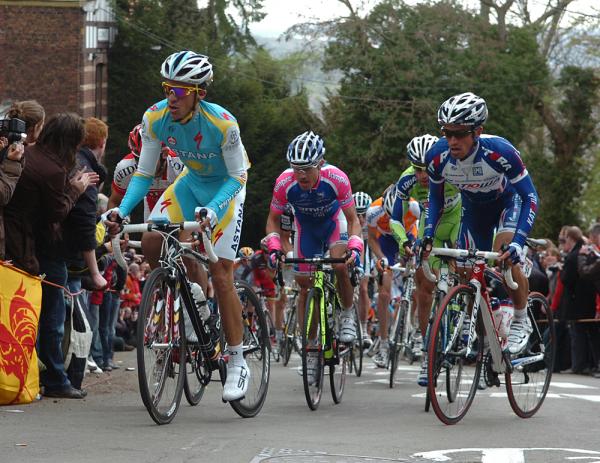
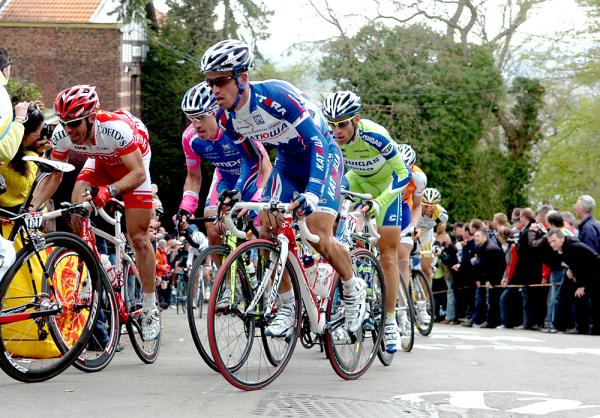
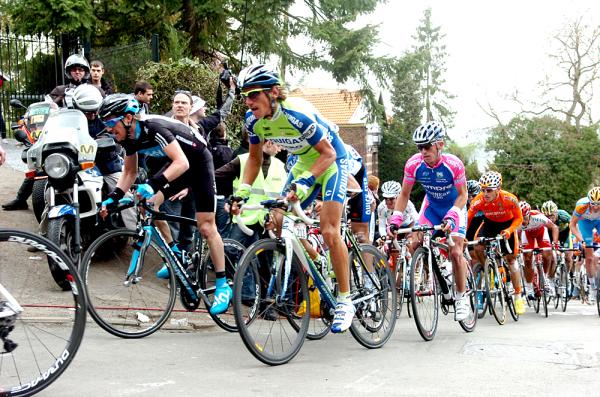
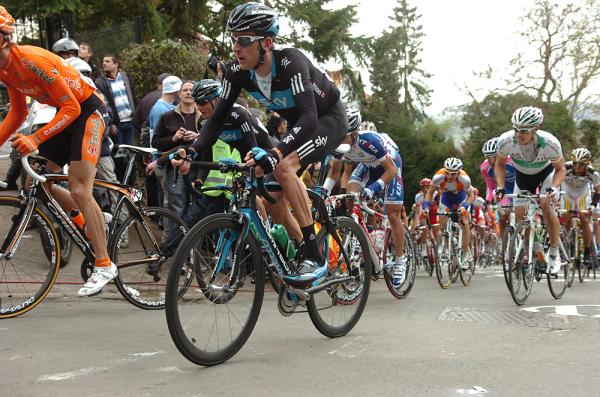
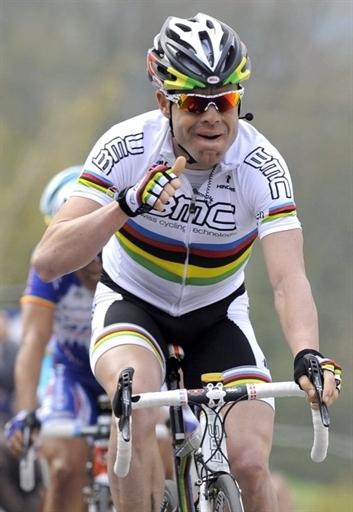
When Cadel Evans was told he was the first world champion to win Flèche Wallonne since local hero Claude Criquielion in 1985, he replied that he was only eight years old at the time. Yet he was clearly honoured to have cast his own rainbow over the Mur de Huy by winning the mid-week Ardennes Classic.
Evans was the first man from his country to win the professional road race world championship, and is now the first Australian to ever win Flèche Wallonne. He is immensely proud of both achievements.
"As I said when I won the world championship last year, my main aim is to honour the jersey," he said in the post-race press conference.
"If I can do as good a season as I possibly can, whether that's here fighting for victory in these Classics or fighting for the overall in the Giro d'Italia and the Tour de France, I think it's going to be a great way to honour to the rainbow jersey. I'll keep working away at that."
Beating Alberto Contador the way he did also gave Evans' victory some extra emphasis, even if he preferred the honour of being considered both a Classics and major Tour contender.
"It doesn't matter who you beat, first all it's important to win, but having Contador lined in the finish line maybe adds a little bit more honour to it," he said.
"But I prefer it when there are cyclists who try in everything. When there's Valverde and Contador trying in both the one-day races and the three-week races, I think it adds a bit of more interest."
Get The Leadout Newsletter
The latest race content, interviews, features, reviews and expert buying guides, direct to your inbox!
Changing teams was the key
It is often suggested that the rainbow jersey has transformed Evans into a more aggressive, even stronger rider. He always disagrees and believes there is a more rational reason: his decision to quit Silence-Lotto and join BMC. He revealed why he made the sudden move on Tuesday and was not afraid to highlight the problems of the past again.
"Everyone says the jersey's changed you but when you wear it, everyone around you changes too. From a human perspective it's a bit strange and not always healthy," he said.
"Everyone thinks l've changed, but I've changed teams, and that's the big thing. I've been so well supported in the (BMC) team. I come to the races much fresher, focused and very well supported, which gives me more energy to put in the pedals.
"The guys go in the breaks and look after everything, getting ready to deliver me to the final so that I can do what I can. We haven't had many victories but I think today was a bit more about quality than quantity and I hope we can continue working as we are."
When asked if he meant that he didn't have that support at Lotto, he said: "I didn't say that," but everyone got the message. And his victory at Flèche Wallonne was damning evidence that he was right to change teams.
Further proof was the tiny but significant detail of BMC directeur sportif John Lelangue persuading him to study the Mur de Huy in detail, so that he would know exactly when to attack.
"John dragged me out here to train on the Mur and compliments to him for having that insight, because it certainly made a difference for me today,' Evans said.
"I've got it wrong so many times, but this year was the first I've ever done a course reconnaissance and after riding the Mur in training, I came to the race with a different perspective on it."
"It was interesting coming into the finale because it's always difficult to judge this one. I've tried different things: tried early and waited late. Klöden went away right at the very start and I thought it could be the race gone. But then they started to come back together.
"The strongest team on climb was Euskaltel and they started to control things a bit. When Contador went I thought he was going to win it, but I closed him the final 300 metres and at the finish line, it's the first over there that matters."
"I wouldn't say there's a secret to the Muy de Huy because each time we get here, there's a different rhythm and completely different combination of riders. Being lucky I think is important and not getting closed in at the bottom. Having the legs helps too.
"Everyone was talking about the different circuit and what's it going to change but for me I said it's the same: lots of hills and a hard course, and then we arrive on the Mur de Huy. It's a different ingredients but the same recipe."
Targeting the Giro d'Italia
Evans is more confident this year because he is wearing the rainbow jersey and in a far better organized team. He is also stronger this spring because he has been training hard for the Giro d'Italia.
"This year I'm working towards the Giro d'Italia and so came here with completely different preparation and race programme than I've had in the past," he said.
"As I said it was interesting to see how I was going because the Giro is getting close and hopefully I'm getting better. So far it's been good."
"One disadvantage of winning Flèche is that everyone is watching me for Liège and that makes it more difficult to win there but we'll see how we go there."
The Tour de France
Evans wants to do well at Liège - Bastogne - Liège on Sunday, but has also not given up on victory at the Tour de France. He struggled in the 2009 Tour de France but promised he will be back fighting for the yellow jersey in July.
"Absolutely. I learned a lot being at the back of the Tour de France last year. I think I can return to my level at the Tour," he said.
"I don't think the Vuelta I did last year was too bad. My intention is return to my best level and two times second and at less than a minute on each occasion, isn't that far from winning, so I'm not going to stop trying, that's for sure."
And honouring the rainbow jersey at the Tour de France could just mean the difference between second place and finally winning the yellow jersey.

Stephen is one of the most experienced member of the Cyclingnews team, having reported on professional cycling since 1994. He has been Head of News at Cyclingnews since 2022, before which he held the position of European editor since 2012 and previously worked for Reuters, Shift Active Media, and CyclingWeekly, among other publications.